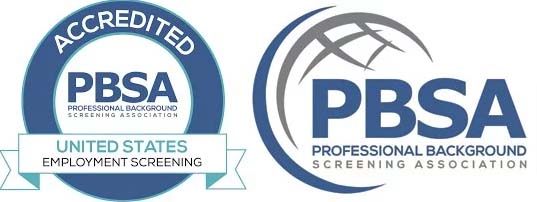Employment screening is vital for employers when hiring new employees. This process can assist employers with finding out which applicants are dependable and credible. These traits considerably aid the company’s efficiency and productivity. This article will discuss the importance of employment screening in Ohio.
Overview of Employment Screening and Its Importance
Employment Screening Definition
Employment screening confirms a candidate’s background, qualifications, and suitability for a position.
Its Importance to Employers
It is vital to employers for five reasons:
Reduces Risk
It can reduce the chance of hiring the wrong person by spotting potential problems early on.
Enhances Hiring Decision
It enhances hiring decisions because they are based on resumes and screening results.
Protects the Company
It can help safeguard the company’s assets and reputation by reducing the likelihood of hiring individuals with a potential history of theft, embezzlement, or fraud.
Follows Hiring Regulations
Certain industries may be legally obligated to ensure that specific positions are filled by individuals with professional licenses and relevant experience. Employment screening helps support the verification of these qualifications.
Reduces Potential Costs
Hiring an unsuitable candidate may result in significant expenses, including training costs, reduced productivity, and potential legal issues. Conducting a background check can help minimize the risk of costly hiring errors.
Its Importance to Employees
Employment screening benefits employees as well. Here are the reasons:
Boosts Confidence
Completing the employment screening process can enhance an employee’s confidence by reinforcing that their background, qualifications, and suitability for the role have been acknowledged.
Develops Trust
Employment screening can foster greater transparency and build trust in the relationship between employers and employees.
Offers Equal Opportunity
Employment background checks can help promote equal opportunity by encouraging a hiring process that focuses on each candidate’s background, qualifications, and suitability for the role.
Brings a Safe Workplace
Employees may feel more secure in the workplace when they know that reasonable steps have been taken to screen for potentially concerning backgrounds.
Key Industries in Ohio That Rely on Background Checks
Healthcare
In Ohio’s healthcare sector, background checks are a requirement for any positions that involve patient interaction, including doctors, nurses, and support personnel. This procedure helps enhance safety and supports compliance with applicable regulatory standards.
Education
Schools, colleges, and universities require employment screening Ohio for teachers, administrators, and staff. This measure helps safeguard students and aligns with the guidelines set by the Ohio Department of Education.
Manufacturing
Manufacturing companies in Ohio conduct background checks to ensure safety and verify their employees’ skills and qualifications. Many of them manage high-security facilities and oversee sensitive materials.
Logistics and Transportation
Trucking, logistics companies, and other transportation providers conduct background checks on their employees. These checks screen drivers who may work with children or vulnerable populations. The process includes reviewing driving records, conducting drug tests, and examining criminal histories.
Financial Services
Ohio’s banks, credit unions, and other financial institutions perform background checks. These screenings include credit history, employment verification, and criminal record checks to help prevent fraud, theft, and other financial crimes.
Government and Public Safety
State and local government agencies in Ohio require thorough background checks on employees for roles involving security, law enforcement, and other sensitive positions.
Security Services
Security personnel are expected to demonstrate reliability and integrity. In Ohio, employment screening plays an important role in helping to verify these qualities.
Technology and Data Security
To safeguard sensitive data and systems, employers strive to ensure that employees are trustworthy and dependable. As part of the hiring process, background checks are commonly conducted to review an individual’s criminal history, educational background, and previous employment.
Retail, Hospitality, and Customer Service
Employers in the retail, hospitality, and customer service sectors often rely on employee screening in Ohio to help ensure they hire dependable staff. In these roles, trustworthiness is essential for handling cash, managing inventory, and maintaining positive customer relationships.
Energy and Utilities
Ohio’s energy sector encompasses oil, gas, and renewable energy, and relies on essential infrastructure. As a result, both federal and state laws require that employees complete employment screenings before being hired.
Nonprofit and Social Services
Workers and volunteers in nonprofit and social services undergo background checks. This sector often involves working with vulnerable populations such as children, elderly individuals, and people with disabilities.
Legal Requirements for Employment Screening in Ohio
Ohio background checks for employment must follow federal, state, and local laws.
Federal Law: Fair Credit Reporting Act (FCRA)
FCRA is the main federal law regulating employers’ and third-party agencies’ conduct of background checks. The following are key requirements.
Advance Written Notice
Employers must provide advance written notice to applicants about the Ohio background check for employment.
Written Consent
Employers must obtain written consent from job applicants before conducting a background check.
Adverse Action Notice
Employers must give applicants an adverse action notice if they decide not to hire them based on the information in the background check results. In addition to the notice, employers must give applicants a copy of the report and a summary of their rights under the FCRA. Their rights include an opportunity to dispute any inaccuracies.
Ohio Fair Hiring Act (House Bill 56)
Ohio’s ” Ban the Box” law prohibits public-sector employers from asking about an applicant’s criminal background until a conditional job offer has been made.
Sealed or Expunged Records
The Ohio Revised Code Chapter 2953 bars employers from inquiring about an applicant’s sealed or expunged criminal records.
Best Practices for Conducting Employment Screening in Ohio
Follow Federal, State, and Local Laws
Follow the FCRA regulations, the Ohio Fair Hiring Act (House Bill 56), and the Ohio Revised Code Chapter 2953.
Screen Only for Job-Relevant Information
Avoid overbroad or irrelevant checks.
Be Consistent
Standardizing screening procedures and policies helps promote fairness and consistency throughout the hiring process.
Train Hiring Managers and HR Personnel
Provide training for hiring managers and HR personnel on legal compliance and best practices.
Use Reputable Background Check Providers
Partner with a certified third-party provider knowledgeable of federal and state regulations.
Final Thoughts
Employment screening is crucial for employers in Ohio. Various industries depend on these screenings to ensure they hire qualified employees. Additionally, it helps employers follow both federal and state employment laws, which include FCRA, Ohio Fair Hiring Act (House Bill 56), and Ohio Revised Code Chapter 2953.









